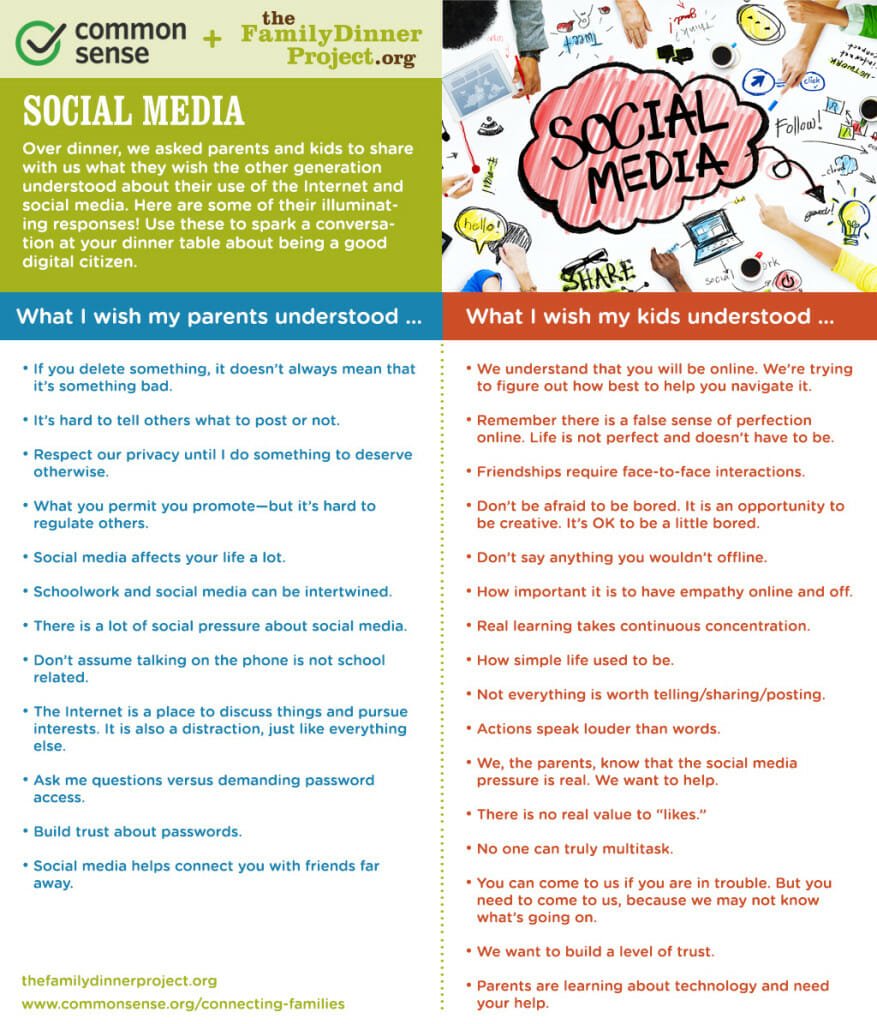If you haven’t seen the social media experiment video that has gone viral by now, it’s about time you view it and share it.
(Kudos to Colby Persin for addressing an important topic.)
Let’s take some facts. 92% of teens visit the Internet on a daily basis, as a matter of fact, 24% of them said they are go on constantly (according to PEW Research). Parents – this is a reality check – the digital world is not going away.
Another study from PEW Research reveals that 57% of teens have made friends online and 20% have meet their new online friends offline. We can’t fault them for that, social media has been proven, even for parents to be a wealth of support and information for each other. PEW substantiated it in their study Parents and Social Media as 79% of parents agreed they turn to social media to look for support from each other – even if they only know the person virtually.
What has to be a priority and improve, is our communication with our family offline.
The Internet and social media is a wonderful gift, educational tool and a phenomenal way to find support when you need it. However like with all great things, there will always be the dark-side or downside. There will always be those that want to ruin it for others or are simply cruel and evil people. From online trolls to Internet predators to cyber-hackers – they won’t discriminate who they harm.
Let’s discuss the video.
The parents, in my opinion, are a bit aggressive although I understand they are so upset and were scared to death. I don’t believe in fear-based teaching – and sometimes the scared-straight tactics are only short term. (I actually have experience with this in my other life profession).
You can show your emotion calmly, with tears of genuine concern and discuss this horrific incident with compassion and love – and immediately start your digital conversations (that they were probably sorely missing) on a regular basis.
Yes, every parent (hopefully) has that discussion about stranger danger offline and online – but how many times? Today it is about repetition, and hopefully even role playing. It is about have it regularly, because on a daily basis new predators and new cyber-scams are popping up!
Just as common as you ask your child how their day of school was, you need to be asking them how their day online is! After-all – go back to that statistic…. they spend a lot of time in cyber-land!
(BTW – so do parents) and there is nothing wrong with it, but let’s be safe.
What is disturbing is when tweens and teens will lie about their age on social media. This is something parents need to seriously discuss with their children. In a recent McAfee study, 42% of teens create alias profiles. This doesn’t mean all are changing their ages, however it is a high percentage changing their identity. Be an educated parent – learn more about this.
Conversations and thoughts to consider with your teen to increase their social wisdom:
- Never stop your daily/regular conversations about digital life.
- Share your new finds on social media, and ask them what they have to share with you.
- Empower your teen with the understanding it’s okay to click-out of a website or chat-room if they are feeling uncomfortable.
- Have an understanding with your teen, that if they make new friends online, you will always be made aware if you they are taking it offline. Build a strong bond of trust with your teenager.
- Let your teen know that no matter what, you are there for them whenever they are in a difficult situation online. You will never judge them. Drop this comment regularly. They tend to forget.
- Remind them of sexting consequences, this is important since predators will encourage youth to send sexual content before meeting.
I want to re-post conversation starters from Common Sense and Family Dinner Project. You never want to run out of topics to talk about! Remember, whether you are in the car, eating a meal or watching a ball game – there is always time to find out what’s going on in your teen’s digital life.


